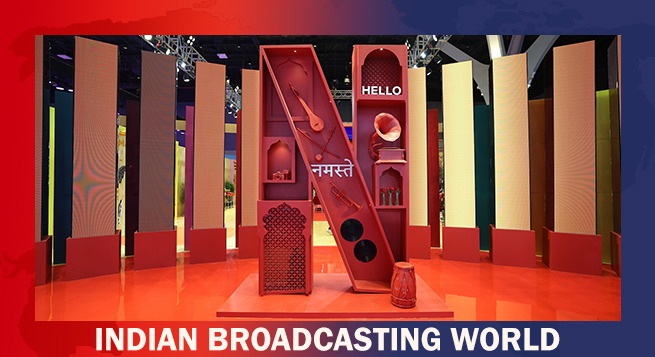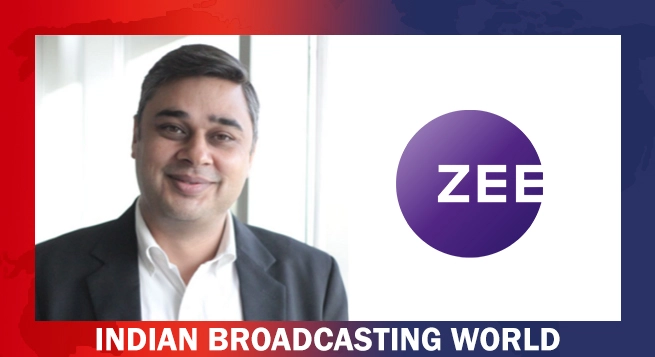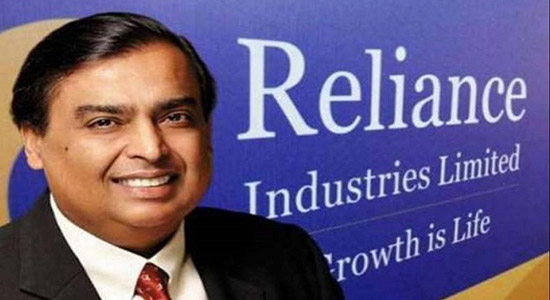Indian billionaire Mukesh Ambani of Reliance Industries Ltd. unveiled the much-awaited JioPhone Next co-developed with Alphabet Inc.’s Google, a handset designed to target India’s hundreds of millions of first-time smartphone users.
“An ultra-affordable 4G smartphone is essential,” Ambani told shareholders at Reliance’s annual general meeting on Thursday, outlining the capabilities of the device that will run a re-engineered version of the Android operating system.
According to a Bloomberg news dispatch, Alphabet CEO Sundar Pichai joined remotely to say that the JioPhone was “built for India” and would deliver translation features, a voice assistant and a great camera.
Neither company leader disclosed a price for the handset, which will debut in the market on September 10, 2021 ahead of the country’s peak shopping and gifting season. Both indicated plans to achieve a breakthrough price.
Jio is India’s leading telecom operator with over 423 million users of voice and data services. The new 4G-capable device will try to entice users of basic phones, those “trapped in the 2G era,” in Ambani’s words, to make the transition to more advanced hardware, the Bloomberg report stated.
For Google, it marks another effort toward making Android friendlier to more frugal devices and thus accessible to a wider audience of potential users of its services.
Google Cloud technologies will form the basis for Jio’s upcoming 5G wireless solutions as well as serving the internal needs of online services such as Reliance Retail and JioMart, Ambani said.
Engineers from the two companies worked for more than nine months to co-develop the JioNext hardware specifications in sync with a modified version of Android that would maintain a high-end experience without recourse to expensive components.
The launch comes nearly a year after Google agreed to buy a $4.5 billion stake in Jio Platforms Ltd., the digital arm of Reliance Industries.
Global tech leaders like Google and Facebook Inc. have jumped on the Reliance bandwagon as they look for ways to grab a slice of the Indian market where an estimated 300 million first-time smartphone users are expected to start accessing the internet by 2025, according to the Internet and Mobile Association of India.
Asia’s richest man, pursuing his own large-scale project of turning an oil-and-petrochemicals giant into a homegrown tech leader, presented the new device even as the plans to sell hundreds of millions of the Google-powered smartphone faced supply chain headwinds.
Standing in the way of the Google-Jio alliance will be China’s fast-rising coterie of leading smartphone makers. Xiaomi Corp., Oppo, Vivo and OnePlus have already established their brands, credentials and some manufacturing facilities in India, with their domestic approach of high specs at low prices resonating well with the Indian consumer.
India is the world’s second-biggest mobile market with about 530 million smartphone users, but more than 300 million people still use legacy feature phones, Hong Kong-based tech consultancy Counterpoint Research says.
Cloud Partnership: Google also said it would help India’s biggest wireless carrier with tech solutions for its enterprise and consumer offerings as it plans to launch 5G services, a Reuters report from New Delhi said.
The tie-up lends Jio the expertise of a global tech giant as it expands digital services to small and medium businesses as well as hundreds of millions of individuals. And it gives Google the unmatched scale of Reliance, whose businesses range from oil to telecoms and e-commerce.
“It’s a broad partnership, it involves multiple pieces of Alphabet working together,” Thomas Kurian, CEO at Google Cloud, told Reuters, adding: “Our own partnership spans multiple parts of Jio not just the communications business … but also health, retail and other things.”
He declined to share the terms of the cloud deal with Jio.
As part of this partnership, Reliance will shift its core retail businesses to Google Cloud’s infrastructure, Google’s Pichai said.
Jio established a 10-year alliance with Microsoft in 2019, aiming to build data centres across India that will be hosted on its Azure cloud platform in a bid to offer services to the country’s booming start-up economy.
On Thursday, Ambani said Jio, which also counts Facebook, Qualcomm and Intel among its backers, was confident of being the first to launch 5G services in India.
 NBF issues another advisory to member TV news channels
NBF issues another advisory to member TV news channels  Govt directs OTT platforms to stop airing Pak content
Govt directs OTT platforms to stop airing Pak content  Netflix to have AI-powered iOS search in TV app revamp
Netflix to have AI-powered iOS search in TV app revamp  India sets up panel to review copyrights laws, AI disputes
India sets up panel to review copyrights laws, AI disputes  Can Trump’s foreign movie tariff threat impact Indian films’ biz?
Can Trump’s foreign movie tariff threat impact Indian films’ biz?  ZEEL appoints Rohit Suri as Chief Human Resource Officer
ZEEL appoints Rohit Suri as Chief Human Resource Officer  Ved Prakash Sharma’s bestselling novels to get film adaptations
Ved Prakash Sharma’s bestselling novels to get film adaptations  Ultra Play celebrates iconic Bollywood mothers with content lineup
Ultra Play celebrates iconic Bollywood mothers with content lineup  Sony PAL records 15.6% weekly reach in Week 17: BARC Report
Sony PAL records 15.6% weekly reach in Week 17: BARC Report  Dolby announces Mother’s Day special content lineup
Dolby announces Mother’s Day special content lineup 








